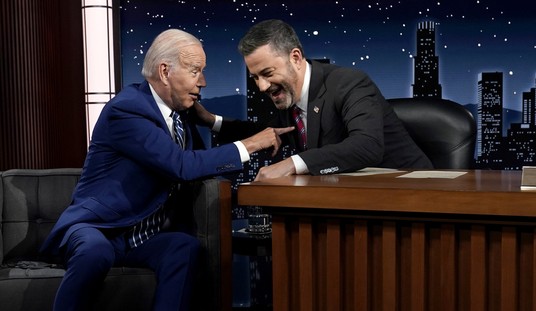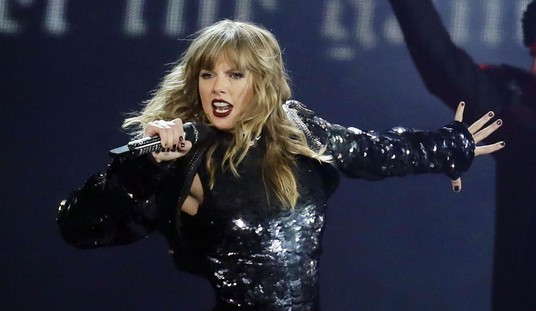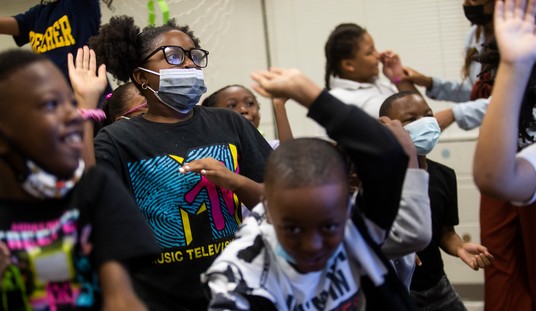In a nod to the efforts to protect children, the Nobel Prize committee awarded its Peace Prize to two activists focused on the defense of children’s rights — Malala Yousefzai of Pakistan and Kailash Satyarthi of India. The committee had reportedly had considered Pope Francis, Edward Snowden, and a handful of others as the most prominent of this year’s record 278 nominees:
The Norwegian Nobel Committee has decided that the Nobel Peace Prize for 2014 is to be awarded to Kailash Satyarthi and Malala Yousafzay for their struggle against the suppression of children and young people and for the right of all children to education. Children must go to school and not be financially exploited. In the poor countries of the world, 60% of the present population is under 25 years of age. It is a prerequisite for peaceful global development that the rights of children and young people be respected. In conflict-ridden areas in particular, the violation of children leads to the continuation of violence from generation to generation.
Showing great personal courage, Kailash Satyarthi, maintaining Gandhi’s tradition, has headed various forms of protests and demonstrations, all peaceful, focusing on the grave exploitation of children for financial gain. He has also contributed to the development of important international conventions on children’s rights.
Despite her youth, Malala Yousafzay has already fought for several years for the right of girls to education, and has shown by example that children and young people, too, can contribute to improving their own situations. This she has done under the most dangerous circumstances. Through her heroic struggle she has become a leading spokesperson for girls’ rights to education.
The pairing of a Muslim and a Hindu was no coincidence, either, but a message to extremists in both camps. The committee made that explicit in their announcement:
The Nobel Committee regards it as an important point for a Hindu and a Muslim, an Indian and a Pakistani, to join in a common struggle for education and against extremism. Many other individuals and institutions in the international community have also contributed. It has been calculated that there are 168 million child labourers around the world today. In 2000 the figure was 78 million higher. The world has come closer to the goal of eliminating child labour.
What makes this interesting is that the Nobel committee had the opportunity last year to consider Malala. They turned her down in favor of the still-obscure Organization for the Prohibition of Chemical Weapons (OPCW), which had been tasked with finding and destroying Syria’s chemical weapons. Like their award in 2009 to Barack Obama, the decision was aspirational, since the work had just begun, and it was as big a failure for the Nobel committee in the end, too. Malala had been working to oppose Taliban oppression of education for women before the Syrian chemical weapons issue arose in the summer of 2013, and had survived a bullet in the face and continued in defiance of the threat to her life. Why the committee waited for a year, and then paired her up with a Hindu to score their own points, will likely be a question posed to the Norwegians on the panel.
That’s not to say that Satyarthi is unworthy, though. He has campaigned against child labor and child abuse in India for decades, some of which amounts to de facto slavery. A PBS profile of Satyarthi reports that he is credited with saving tens of thousands of children from “bonded labor” in India, and helped rehabilitate them back to self-sufficiency. That profile dates back to 2005, though, which again raises the question of why the Nobel committee overlooked him while giving awards to Obama and Jimmy Carter, among others.
Here at the Vatican, the reporters in the press office had waited with some anticipation for this decision. Most here felt that getting a public acknowledgment of runner-up status would be as close as Pope Francis would get, given the committee’s politics regarding contraception and marriage, among other issues. A few speculated that the questionable string of recipients over the last few years, including OPCW and Obama, might incentivize the Nobel committee to attempt to piggyback on the pontiff’s global popularity. Most of us thought such an award was unlikely; one reporter joked in English, “I’ll bet every woman in the room a kiss that Pope Francis doesn’t win the Nobel Prize,” which so far he has not attempted to collect, although I did congratulate him on his strategy. “It’s all I’ve got,” he responded with a laugh.
This time, the Nobel committee got it right, even though it was tardy in doing so for both of its recipients. Maybe the embarrassments of the last several years has begun to convince the Nobel committee to stick to actual peace efforts rather than attempting to play global politics.








Join the conversation as a VIP Member